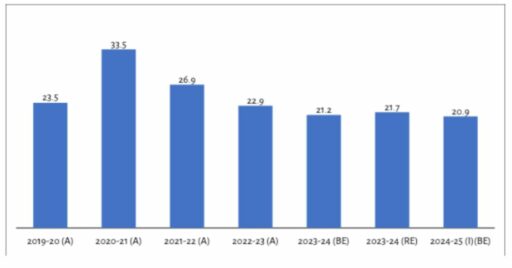In the pursuit of financial stability and growth, Kiplinger’s Personal Finance offers invaluable advice for maximizing savings and managing personal finances effectively. This article delves into key strategies for tax planning, essential personal finance practices, investment insights, lifestyle considerations for financial well-being, and timely year-end financial actions. Drawing from Kiplinger’s expertise, we present practical tips and insights to help you build a stronger financial future.
Key Takeaways
- Effective tax planning involves understanding and maximizing deductions, capital gains taxes, and state tax implications while employing long-term strategies.
- Building a strong financial foundation includes creating a robust savings plan, choosing appropriate insurance, smart banking, credit card rewards maximization, and finding the best deals.
- Investing in your future requires strategic retirement planning, balancing income and growth investments, and leveraging Kiplinger’s economic forecasts for informed decision-making.
- Lifestyle choices, such as selecting the best place to live, investing in real estate, budget travel, and career moves, can significantly impact your financial well-being.
- End the year on a high note by reviewing your financial plan, considering charitable giving tax implications, setting goals for the new year, and completing financial housekeeping before December 31st.
Strategies for Effective Tax Planning


Maximizing Tax Deductions
As the tax season approaches, it’s crucial to maximize your tax deductions to reduce your taxable income and potentially lower your tax bill. Here are some actionable steps to consider:
- Itemize deductions if they exceed the standard deduction amount, focusing on areas such as mortgage interest, state taxes paid, and charitable contributions.
- Contribute to retirement accounts like a 401(k) or IRA, which can lower your taxable income.
- Medical expenses that surpass 7.5% of your adjusted gross income can be deducted.
- Educational expenses, including tuition and fees, may be eligible for deductions or credits.
Remember, the key to effective tax planning is to utilize all available deductions without overlooking potential savings. Consult with a tax adviser to ensure you’re not missing out on any opportunities.
In addition to these steps, consider strategies that align with your long-term financial goals. Tax-efficient investments, such as municipal bonds or tax-managed funds, can complement your efforts in tax efficiency. By integrating these tactics into your overall financial plan, you can work towards financial growth while managing your tax liability.
Understanding Capital Gains Taxes
Capital gains taxes can significantly affect your investment returns. Understanding and planning for these taxes is crucial for maximizing your financial growth. When you sell an asset for more than its purchase price, the profit is subject to capital gains tax, which varies based on the length of time the asset was held and your income level.
Here are some strategies to manage capital gains taxes:
- Utilize tax-loss harvesting to offset gains with losses.
- Invest in tax-efficient funds to minimize taxable events.
- Consider timing of sales to qualify for long-term capital gains rates.
- Explore opportunities for charitable contributions of appreciated assets.
By aligning your investment strategy with personal goals and utilizing tools like Monarch Money, you can craft a personalized financial plan that accounts for tax implications and helps track savings goals and investments.
Remember, the key to effective capital gains tax management is proactive planning. Consult with a tax professional to tailor these strategies to your specific financial situation.
Navigating State Taxes
Understanding and navigating state taxes can be as crucial as federal tax planning. Each state has its own set of rules and rates, which can significantly affect your overall tax burden. For instance, some states have no income tax, while others may have high property taxes. It’s essential to familiarize yourself with the tax landscape of your state to optimize your financial strategy.
When considering state taxes, remember to account for deductions and credits unique to your state that can reduce your taxable income.
Here’s a quick reference to help you identify potential areas for tax savings:
- Review state income tax brackets and credits
- Understand property tax guidelines and exemptions
- Consider the impact of state taxes on retirement contributions
- Keep track of deductible expenses, such as medical costs and charitable contributions
Always consult with a tax adviser to ensure you’re making the most of the tax benefits available to you. As the year ends, it’s a good opportunity to review your state tax situation and make any necessary adjustments.
Long-term Tax Planning Techniques
Long-term tax planning is essential for securing your financial future and ensuring you’re not paying more than necessary. Developing a clear tax management strategy is crucial, especially for investors who may face capital gains taxes on their portfolios. By minimizing the taxation impact on your income, you can significantly enhance your wealth over time.
- File and pay taxes on time to avoid penalties.
- Organize documentation for next year.
- Pay correct estimated taxes.
- Take taxes as a national responsibility and enjoy state benefits.
This final lap before tax season is a chance to potentially reduce your upcoming tax bill. It’s important to speak with a tax adviser about which tax planning strategies may be most appropriate for your individual situation.
Investment strategies such as donating to charity, harvesting investment losses to offset gains, and saving in tax-advantaged accounts can be part of a robust long-term tax plan. Municipal bonds, tax-efficient mutual funds, and separately managed accounts are examples of investments that offer tax benefits while helping you save for various goals.
Personal Finance Essentials


Building a Robust Savings Plan
Building a robust savings plan is essential for financial security and peace of mind. Start by establishing clear and specific goals; for instance, aim to contribute a set amount monthly to your retirement account or to pay extra towards high-interest debt.
Emergency funds play a crucial role in a solid savings strategy. Data from BlackRock indicates that having at least $1,000 in emergency savings can lead to a 70% increase in retirement contributions and reduce the likelihood of early withdrawals.
To enhance your savings efforts, scrutinize your budget for potential cuts and redirect those funds to your retirement savings. When your income increases, such as after receiving a raise, consider boosting your savings rate accordingly.
Engaging with your employer’s savings tools is also vital. Speak with your HR department about available retirement plans like 401(k)s and ensure you’re maximizing these benefits. The impact of these tools on your retirement savings can be substantial, so take full advantage of them to secure your financial future.
Choosing the Right Insurance for Your Needs
Insurance is a cornerstone of personal finance management, acting as a safety net for unforeseen events. It’s crucial to periodically assess your insurance coverage, especially in anticipation of major life events. As you approach open enrollment season, consider the following steps:
- Review your current insurance policies, including life, disability, long-term care, and property or casualty insurance.
- Understand the terms and benefits of each policy, paying close attention to the fine print.
- Determine if your current policies are sufficient for your projected needs in 2024.
Remember, the choices you make now can significantly impact your financial security and peace of mind.
When evaluating life insurance, distinguish between term policies and those with a cash value. Term policies, often provided by employers, expire when you leave the company and are not assets. In contrast, cash-value life insurance policies are personal assets and should be factored into your net worth statement. Consulting with a financial advisor can help you navigate these decisions and align your insurance choices with your overall financial goals.
Smart Banking for Better Returns
In the realm of personal finance, smart banking is a cornerstone for maximizing returns. By choosing the right banking products, you can enhance your savings without taking on additional risk. For instance, high-yield savings accounts offer better interest rates compared to traditional savings accounts, making them an attractive option for your emergency fund or short-term savings goals.
When it comes to checking accounts, look for options that minimize fees and offer benefits like cashback or interest earnings. Some banks also provide sign-up bonuses, which can be a lucrative way to boost your initial deposit. It’s important to compare the different offerings from various financial institutions to find the best fit for your needs.
Remember, the goal of smart banking is not just to save money, but to make your money work harder for you. Regularly reviewing bank statements and staying informed about new banking products can lead to better financial decisions and improved financial well-being.
Here’s a quick guide to some of the banking products you should consider:
- Best Savings Accounts: Look for accounts with the highest interest rates and lowest fees.
- Best Checking Accounts: Seek out accounts that offer rewards or interest and have low or no monthly fees.
- Best CD Rates: For those looking to lock in a rate for a set term, compare the CD rates across banks.
- Best Money Market Accounts: These accounts often combine the benefits of savings and checking accounts, with higher interest rates and some check-writing capabilities.
Credit Card Management and Rewards Maximization
Effective credit card management is crucial for maximizing rewards and minimizing costs. Choosing the right credit card for your spending habits and payment ability can lead to significant savings and benefits. Here are some key points to consider:
- Understand the rewards structure of each card. Look for cards that offer higher rewards rates on categories where you spend the most.
- Pay attention to sign-up bonuses, but read the fine print to ensure you can meet the spending requirements without overspending.
- Always pay your balance in full to avoid interest charges, which can quickly negate any rewards earned.
By using credit cards strategically, you can turn everyday purchases into valuable rewards.
Remember, credit card debt can be a major obstacle in achieving financial freedom. If you’re carrying a balance, prioritize paying it off. Consider transferring high-interest debt to a card with a 0% introductory APR offer, but be aware of balance transfer fees and the regular APR after the promotional period ends. Lastly, keep track of your credit score, as it affects your ability to qualify for the best offers.
Finding the Best Shopping Deals and Discounts
In the digital age, savvy shoppers have a plethora of tools at their disposal to ensure they’re getting the best value for their money. Online deal sites and price comparison tools have revolutionized the way we shop, making it easier to find discounts and promotions. Our guide to the deal sites and tools to help you bag the best online shopping bargains, with none of the hassle.
To start, consider using a variety of resources to compare prices across different retailers. Here’s a simple list to get you started:
- Bookmark reputable deal sites that aggregate discounts and promotional codes.
- Install browser extensions that automatically apply coupon codes at checkout.
- Sign up for newsletters from your favorite stores to get early access to sales and exclusive offers.
- Follow brands on social media for flash sales and giveaways.
Remember, the key to finding the best deals is not just about the discount. It’s also about the quality of the product and the reputation of the seller. Always read reviews and do your research before making a purchase.
Lastly, keep an eye out for special shopping events like Black Friday, Cyber Monday, and seasonal sales, where discounts can be particularly steep. By staying informed and utilizing the right tools, you can maximize your savings while enjoying a seamless shopping experience.
Investing in Your Future


Retirement Planning Strategies
When it comes to securing your golden years, retirement planning is a cornerstone of financial well-being. It’s essential to start early and be consistent with your contributions to take full advantage of compound interest. If you’re without a workplace retirement plan, consulting a financial advisor can help you explore various options tailored to your goals.
- Retirement Calculator
- 401(k) Calculator
- Social Security Calculator
- RMD Calculator
These calculators are invaluable tools for projecting your retirement savings and understanding how much you need to contribute to meet your desired retirement lifestyle. Additionally, familiarizing yourself with the Rule of 55 or seeking advice on 401(k) contributions can further refine your strategy.
The journey to retirement is marked by challenges such as inflation and taxation. A comprehensive approach that includes estate planning and evaluating insurance options will pave the way for a secure financial future.
Remember, retirement planning, insurance options, and investment strategies are intertwined. They form the bedrock of your financial security and stability, ensuring that you can enjoy your retirement years without financial worry.
Investing for Income and Growth
Investing for income and growth is a dual-focused strategy that aims to balance immediate financial needs with long-term ambitions. Diversifying your portfolio across different asset classes can help mitigate risks associated with market volatility. Consider a mix of stocks, bonds, and real estate investments to achieve a blend of capital appreciation and income generation.
When planning your investment strategy, it’s crucial to be aware of factors that can erode your wealth, such as inflation and taxation. Utilizing tax-advantaged accounts like IRAs or 401(k)s can be beneficial. Additionally, tools like investment calculators and guides can assist in making informed decisions.
It’s essential to align your investment choices with your financial goals and risk tolerance. Regularly reviewing and adjusting your portfolio can help you stay on track towards achieving your objectives.
For those holding company equity or securities, consider strategies that offer tax benefits, such as municipal bonds or tax-efficient mutual funds. Remember, the road to accumulating meaningful wealth includes addressing retirement planning, estate planning, and insurance options.
Understanding Kiplinger Economic Forecasts
Kiplinger’s economic forecasts are a valuable tool for investors looking to stay ahead of market trends and economic shifts. Understanding these forecasts can help you make informed decisions about when to buy or sell investments, or how to adjust your portfolio to mitigate risk and capitalize on growth opportunities.
- Economic Growth: Projected GDP changes.
- Inflation: Expected rises in prices.
- Employment: Anticipated job market trends.
- Interest Rates: Central bank policy expectations.
By keeping a close eye on Kiplinger’s economic forecasts, you can gain insights into potential economic outcomes and adjust your investment strategies accordingly.
It’s also crucial to consider the impact of political and business cycles on economic conditions. Kiplinger’s forecasts often include analysis of these factors, providing a comprehensive view of the financial landscape. Regularly reviewing and interpreting this data can be the difference between reactive and proactive financial planning.
Building Wealth Through Diverse Investments
Diversifying your investment portfolio is a key strategy for building wealth and mitigating risk. Asset allocation is crucial; it involves spreading your investments across various asset classes such as stocks, bonds, and real estate to balance potential risks and returns.
- Stocks offer growth potential but come with higher volatility.
- Bonds provide steady income and are generally less volatile than stocks.
- Real estate can offer both income through rent and potential appreciation in value.
- Alternative investments, like commodities or hedge funds, can provide diversification benefits.
It’s important to review your investment mix regularly to ensure it aligns with your financial goals and risk tolerance. A well-balanced portfolio can help you navigate market fluctuations and work towards long-term financial security.
Remember, diversification does not guarantee against loss, but it is an effective strategy to manage investment risk.
Lifestyle and Financial Well-being


Selecting the Best Places to Live for Financial Advantage
When considering relocation, especially during retirement, financial implications play a significant role. Selecting a state with favorable tax policies can greatly enhance your financial well-being. For instance, some states offer no income tax, beneficial property tax rates, or exemptions on retirement income, which can lead to substantial savings over time.
- Florida: No state income tax, and property tax rates are below the national average.
- Wyoming: No state income tax and offers tax exemptions on retirement income.
- Nevada: No state income tax, plus no tax on Social Security benefits or retirement income.
Relocating to a tax-friendly state can be a strategic move for retirees seeking to maximize their savings and stretch their retirement dollars further.
It’s important to not only look at tax policies but also consider the cost of living, healthcare facilities, and overall quality of life. The 10 Most Tax-Friendly States for Retirees from Kiplinger highlights states that strike a balance between tax efficiency and livability. Before making a move, it’s advisable to consult with a financial advisor to understand the full scope of potential benefits and drawbacks.
Real Estate Investment and Homeownership
Investing in real estate can be a lucrative venture, but it’s crucial to go in with your eyes open to the potential costs and challenges. Many landlords underestimate the ongoing expenses associated with property management, which can significantly affect the return on investment. For instance, while an 8% to 10% return might be expected, the reality often hovers around 1% to 2%.
When considering real estate investment, it’s important to account for various costs:
- Mortgage payments
- Property taxes
- Maintenance and repairs
- Insurance premiums
- Management fees
- Vacancy costs
- Capital expenditures
Real estate investment is not just about the initial purchase; it’s a long-term commitment that requires careful financial planning and consideration of market trends.
Understanding the different types of mortgage rates and their implications is also key. For example, adjustable-rate mortgages (ARMs) like 7/1, 5/1, and 3/1 can offer lower initial rates, but they come with the risk of future rate increases. Homebuyers and investors should weigh these options against fixed-rate mortgages to determine the best fit for their financial situation.
Budget Travel Without Sacrificing Experience
Traveling on a budget doesn’t mean you have to miss out on fantastic experiences. Crafting a flexible and realistic spending plan is the cornerstone of budget travel that allows for both savings and enjoyment. A good budget is dynamic, adapting to your changing needs and circumstances, ensuring that you can explore new destinations without financial stress.
- Identify your spending habits and hobbies that could impact your travel budget.
- Track your expenses diligently to understand where you can make adjustments.
- Prioritize experiences over material purchases to enrich your travel without overspending.
By being mindful of your spending and making conscious choices, you can stretch your travel dollars further and still indulge in the activities that make your trips memorable.
Remember, the goal of budgeting is not to restrict your joy but to enhance it by making smart financial decisions. Whether it’s choosing less expensive accommodations, dining at local eateries instead of tourist traps, or using public transportation, each choice contributes to a richer travel experience. Embrace the adventure of budget travel and discover how rewarding it can be to see the world without breaking the bank.
Career Moves That Enhance Earning Potential
Making strategic career moves can significantly impact your financial well-being and long-term earning potential. Investing in continuous education and skill development is crucial for staying competitive in today’s job market. Specializing in high-demand areas, such as technology or healthcare, can lead to higher salaries and better job security.
Consider the value of networking and mentorship in your career growth. Building strong professional relationships can open doors to opportunities that might otherwise be inaccessible.
- Transitioning to a new industry or role may offer a salary boost, but it’s important to weigh the costs and benefits.
- Negotiating your salary and benefits package during job offers or reviews can lead to significant increases in your overall compensation.
- Seeking leadership roles or starting your own business could also elevate your earning potential, though these paths come with their own set of challenges and risks.
Year-End Financial Moves to Consider


Reviewing and Adjusting Your Financial Plan
As the year draws to a close, it’s crucial to refocus your financial strategy and ensure you’re on track to meet your goals. Begin by examining your account balances and budget, and consider any strategic adjustments in response to the current market conditions. This process is not just about numbers; it’s about aligning your financial actions with your life’s objectives.
- Review your net worth statement and compare it to previous periods.
- Assess your progress towards short-term and long-term goals.
- Identify areas where you’re falling short and brainstorm corrective measures.
- Celebrate your successes and maintain motivation for continued financial discipline.
Year-end planning is a personalized process. Reflect on your financial journey, finalize goals for the current year, and set the stage for the upcoming year’s ambitions. It’s a time for intentional spending and strategic decision-making to maximize your financial well-being.
Remember, regular reviews of your financial plan can help you spot problems early and make necessary adjustments. Whether you’re single or have a partner, discussing your financial achievements and shortcomings is key to staying on course. If you’re not making satisfactory progress, consider revisiting your approach and seek advice if needed.
Charitable Giving and Tax Implications
Charitable giving not only supports the causes you care about but can also provide significant tax benefits. Donating appreciated securities, such as stocks or mutual funds, can be more tax-efficient than giving cash because you may avoid paying capital gains tax on the appreciation while still receiving a tax deduction for the full market value.
-
Donor-advised funds (DAFs) offer flexibility in charitable giving, allowing you to contribute now and decide on the specific charities later. This can be particularly advantageous for those who wish to make a substantial donation but want to spread the impact over time.
-
Consider the timing of your donations to optimize tax benefits. For instance, bunching contributions in a single year can help you surpass the standard deduction threshold, making itemizing deductions more beneficial.
When planning your charitable contributions, it’s essential to understand the tax implications to maximize the benefit to both you and the recipient organizations. Strategic giving can enhance your financial planning while supporting your philanthropic goals.
Remember that rules around charitable giving and taxes can be complex, and it’s advisable to consult with a tax professional to ensure you’re making the most of your charitable endeavors.
Setting Goals for the Upcoming Year
As the year draws to a close, it’s crucial to reflect on your financial journey and set forth a roadmap for the upcoming year. Start by evaluating your financial health and identifying areas for improvement. Break down your aspirations into manageable objectives, distinguishing between short-term and long-term goals. For instance, you might aim to increase your retirement contributions or reduce high-interest debt.
- Review your financial progress over the past year
- Identify short-term and long-term goals
- Make your goals specific and measurable
- Prioritize your goals based on importance and feasibility
Setting clear and achievable goals is the cornerstone of a successful financial strategy. It not only provides direction but also instills a sense of purpose and motivation.
Remember, goals should be specific and measurable. Instead of a vague intention to ‘save more for retirement,’ commit to a precise figure, like contributing an additional $100 monthly to your 401(k). Similarly, rather than simply aiming to ‘reduce debt,’ specify an extra amount to pay towards the credit card with the highest interest rate each month. By doing so, you create a clear path to follow and make it easier to track your progress.
Financial Housekeeping Before December 31st
As the year draws to a close, it’s crucial to conduct a thorough review of your financial situation and make any necessary adjustments. This process is not just about looking back but also setting the stage for a prosperous new year. Here are a few steps to guide you through your financial housekeeping:
- Evaluate your budget and account balances to ensure they align with your financial goals.
- Consider any changes in your investment strategy to adapt to current market conditions.
- Prepare for tax season by assessing your tax situation and planning for any potential liabilities.
- Schedule time to discuss any financial concerns or questions with a professional advisor.
Remember, the end of the year is an opportunity to wrap up loose ends and lay the groundwork for future financial success. Don’t let it pass without taking action.
By taking these steps, you can enter the new year with confidence, knowing that you have a solid plan in place to manage money, save effectively, and pursue your financial aspirations.
Conclusion
As we’ve explored throughout this article, maximizing your savings requires a blend of strategic planning, disciplined budgeting, and informed decision-making. By subscribing to Kiplinger’s Personal Finance, you can stay ahead with expert advice on everything from tax deductions to retirement planning. Remember to pay yourself first, build an emergency fund, and continuously look for ways to optimize your financial health. Whether you’re planning for retirement or seeking to grow your wealth, the insights from Kiplinger can guide you towards achieving your financial goals. As you implement these tips, keep in mind that personal finance is a journey, and Kiplinger is here to help you navigate every step of the way.
Frequently Asked Questions
How can I maximize my tax deductions?
To maximize your tax deductions, ensure you’re aware of all deductible expenses relevant to your situation, such as charitable donations, mortgage interest, and education expenses. Keep thorough records and consider consulting a tax professional to identify additional opportunities.
What should I know about capital gains taxes?
Capital gains taxes apply to profits from the sale of assets. Long-term gains (assets held for more than a year) are typically taxed at lower rates than short-term gains. Planning the timing of asset sales and using strategies like tax-loss harvesting can help minimize capital gains taxes.
How can state taxes affect my personal finances?
State taxes vary widely, affecting income, property, and sales tax rates. Consider state tax implications when making decisions about where to live, work, and invest. Some states offer tax advantages that can significantly impact your overall tax burden.
What are some long-term tax planning techniques?
Long-term tax planning techniques include investing in tax-deferred accounts like IRAs and 401(k)s, utilizing health savings accounts (HSAs), considering Roth conversions, and strategically planning charitable contributions. These moves can help reduce your taxable income over time.
How can I build a robust savings plan?
To build a robust savings plan, prioritize saving by treating it as a fixed expense, regularly review and adjust your budget to find additional savings opportunities, and increase your savings rate incrementally, especially after receiving a raise or windfall.
What financial moves should I consider before the year-end?
Before year-end, review and adjust your financial plan, consider making charitable contributions for tax deductions, set goals for the upcoming year, and complete any financial housekeeping, such as required minimum distributions (RMDs) from retirement accounts, to avoid penalties.





